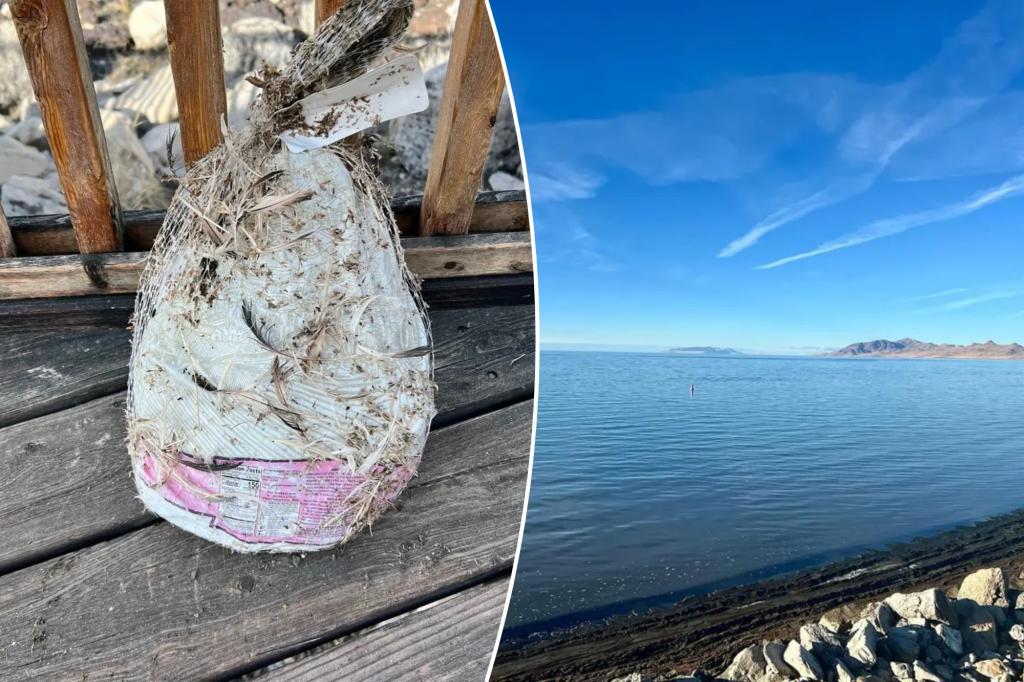Summarize this content to 2000 words in 6 paragraphs
What a bunch of bird brains.
Everybody wants their Thanksgiving turkey to stand out, but home chefs in one state are flying a little over the nest by trying to brine tomorrow’s dinner at a public saltwater beach, officials say.
Famed for its salinity levels ranging from two to nine times higher than the ocean, Utah’s Great Salt Lake has gained something of a reputation in the heavily populated Wasatch Front region as a place to drop off your holiday main course for an outdoor bath before cooking.
But after a turkey washed ashore on a popular beach near Salt Lake City earlier this week, state park honchos felt compelled to warn against the practice on social media.
Along with cautioning that the lake’s salt content is “too high for a proper brine,” a spokesperson added, “the waves can be very strong and there’s a good chance you could lose the entire turkey.”
While the bizarre stunt meant another trip to the grocery store for the unknown individual, it also resulted in a belly laugh for some online viewers.
“I’m not sure what’s funnier, the fact that this apparently happened or that someone thought you could brine a turkey without taking the packaging off,” one commented on the post.
“Vibe just died,” added another.
While salt water — adhering to correct salinity levels, of course — is a common method employed t bring out the juiciness of a turkey, one social media foodie suggests another approach for tomorrow’s big meal.
Daryll Postelnick, who runs the popular Instagram page Cooking With Darryl, suggests using milk as a brine.
“The milk and the buttermilk together, they break down the proteins — or the proteins in there break down the turkey, get inside and really make it juicy,” the culinary pro told Fox News.
“This brine, I mean — I was able to literally cut the drumstick and the entire back came off with it, dripping with juice. It was awesome,” he said.
Meanwhile, cooks prepping their sides might want to stop and think about using one popular stuffing brand — said to be banned in the UK, EU and Japan over ingredients that have been linked to cancer, The Post reported earlier.


